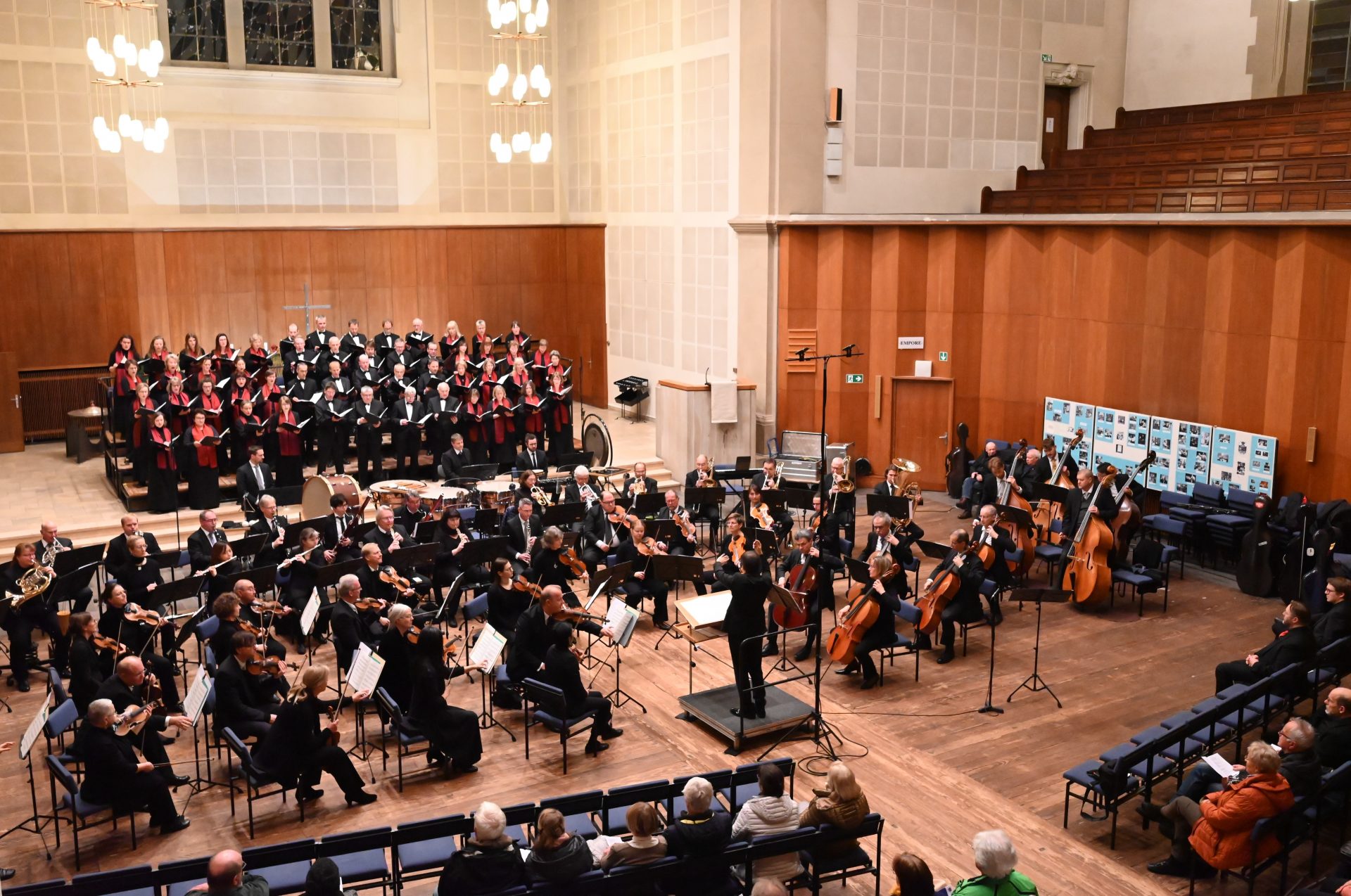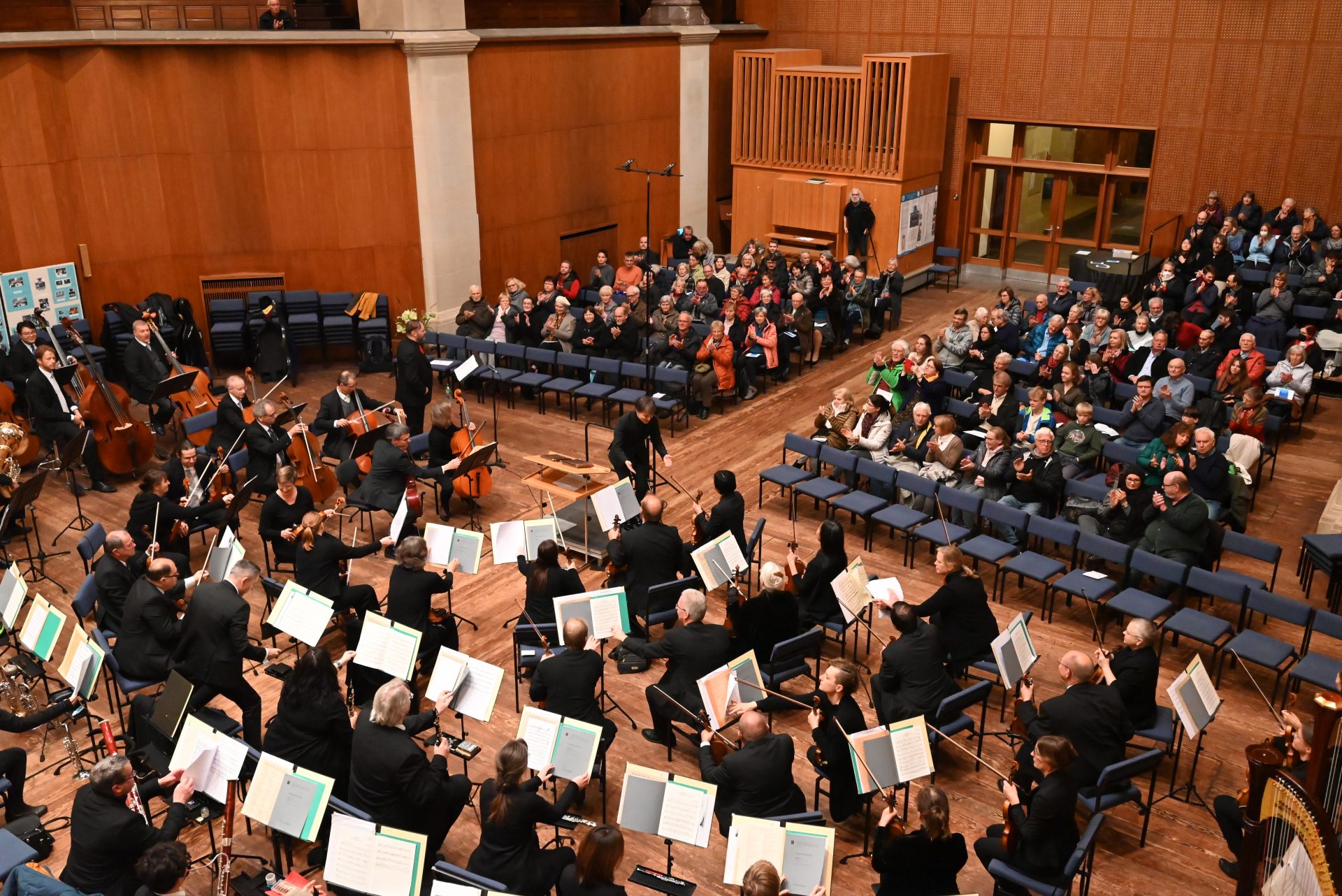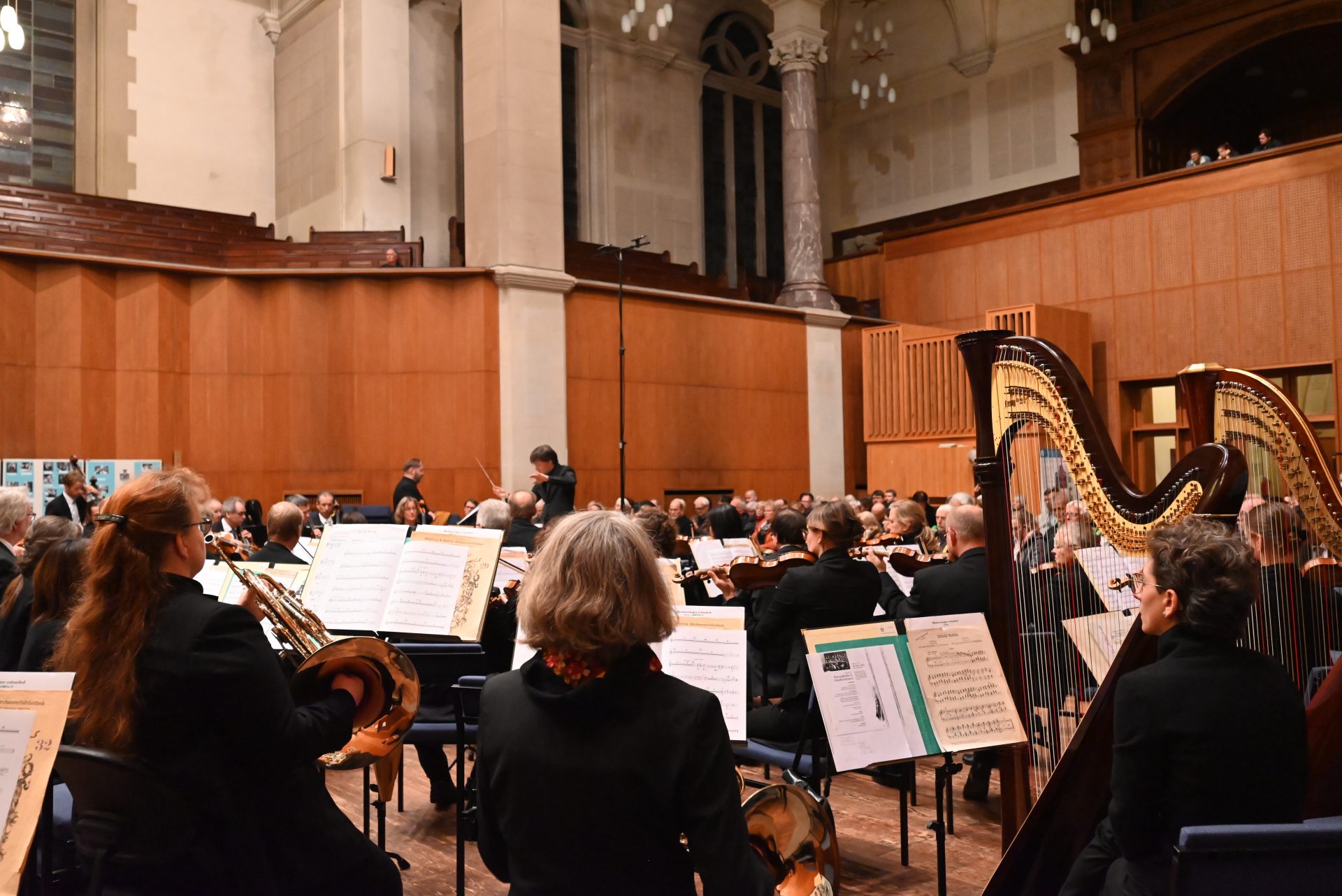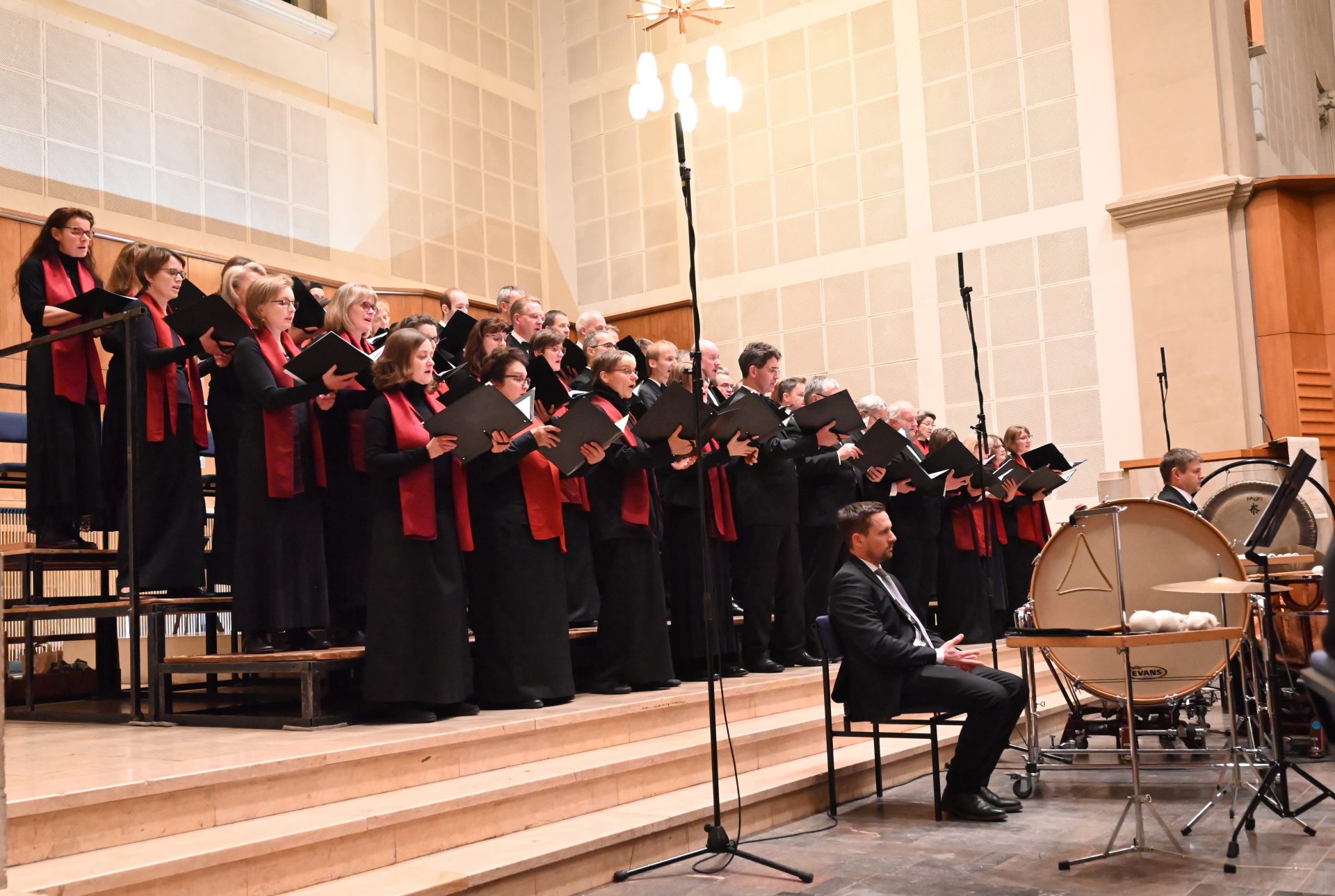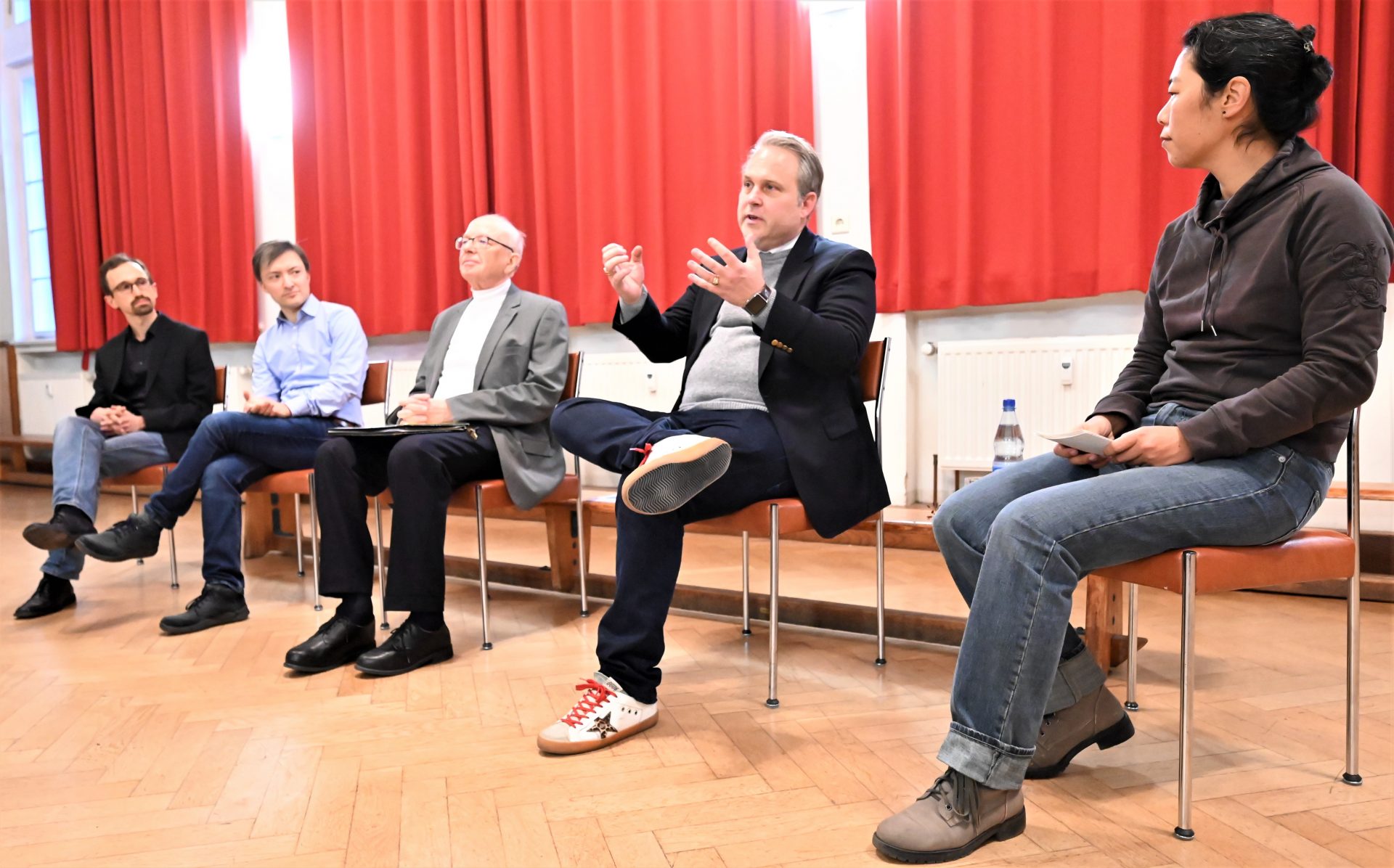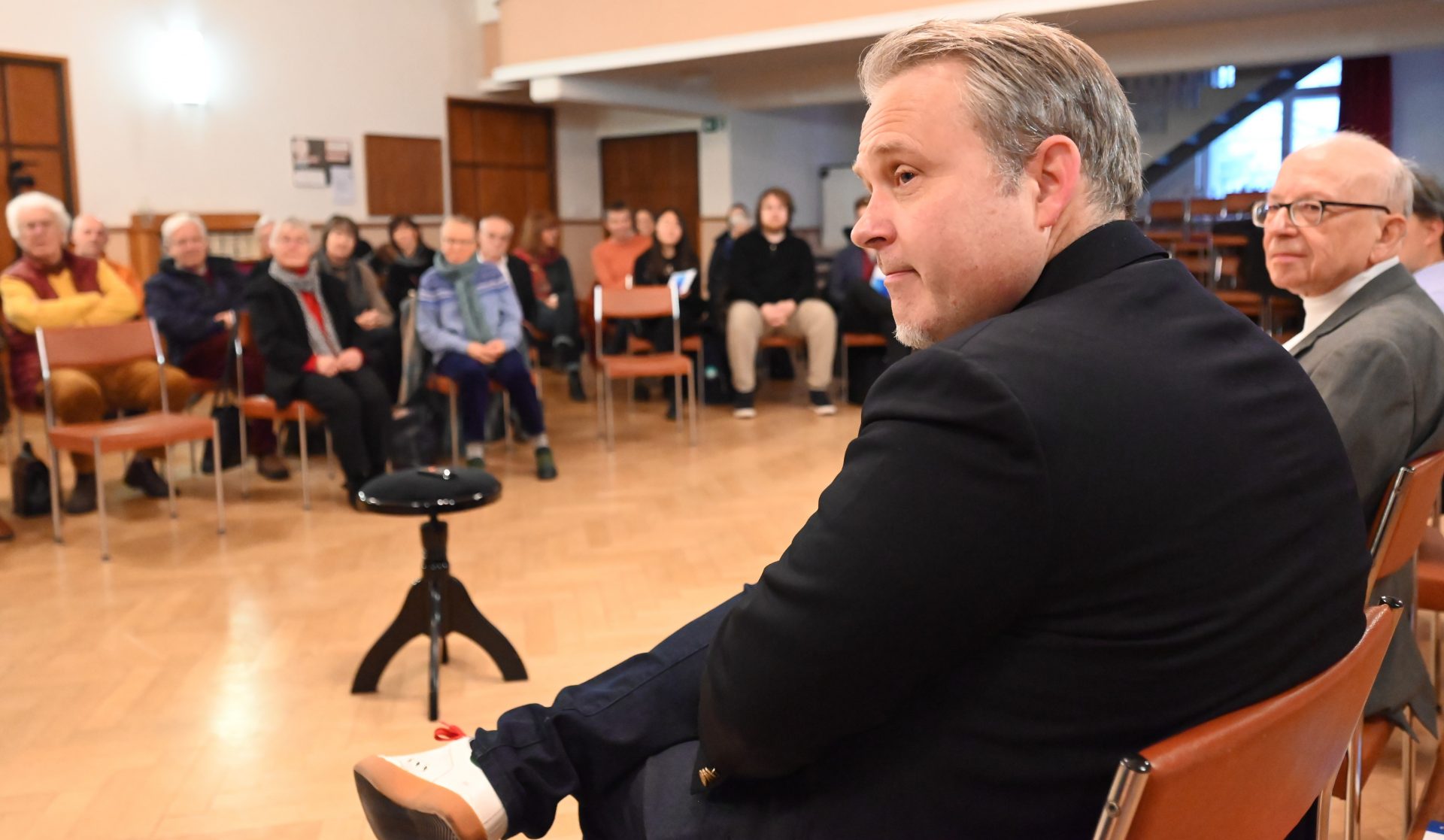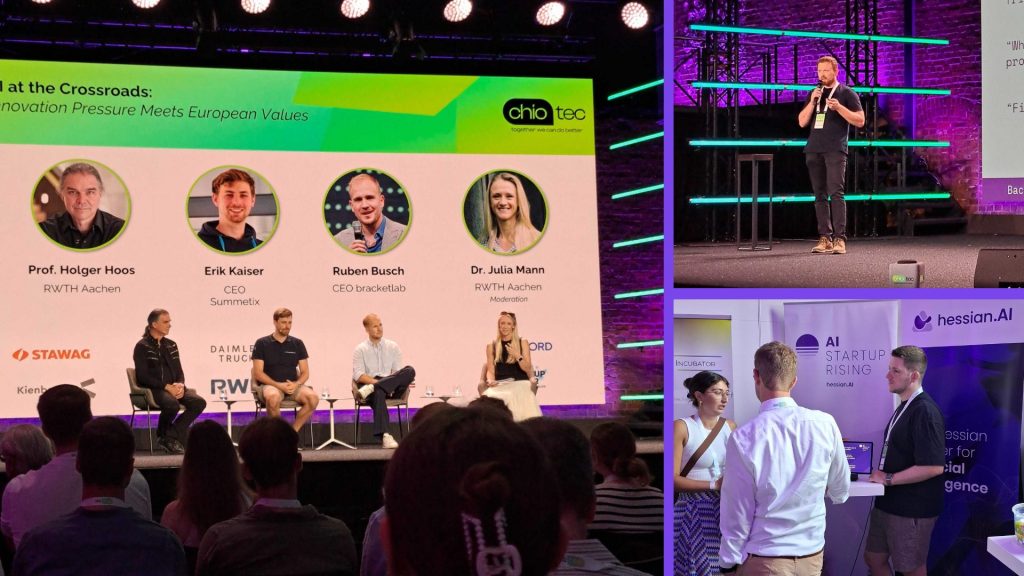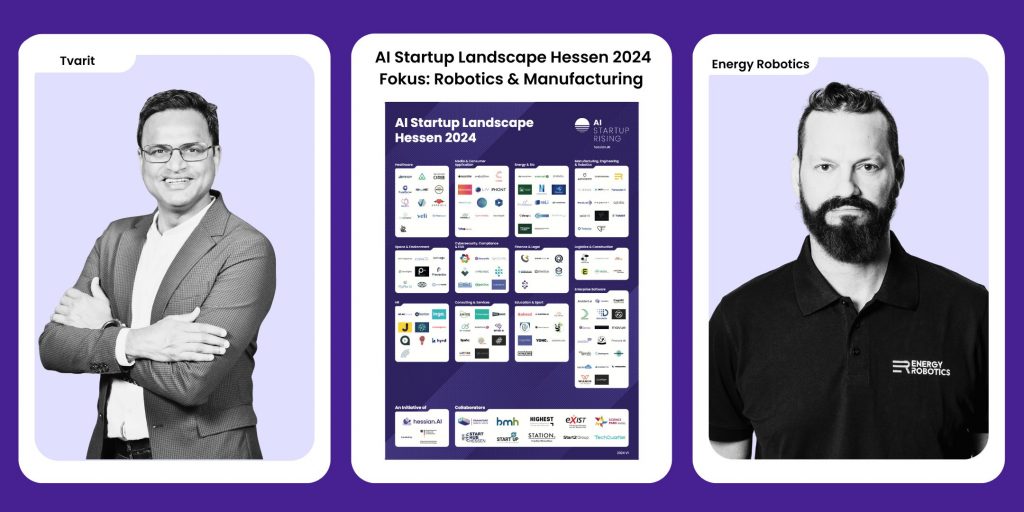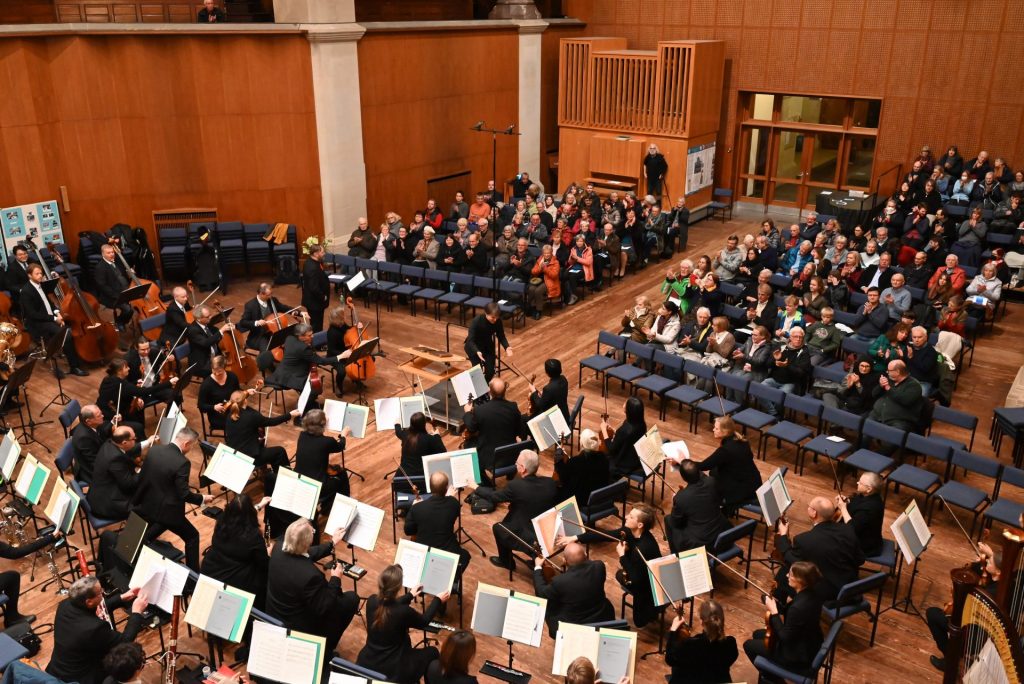
Future Music: AI Composition “Meistersinger Reloaded” was premiered in Dresden
Imagine: Can machines compose? A team of AI experts from hessian.AI and Aleph Alpha as well as musicians from the Singakademie Dresden have dared the experiment: on 20 November 2022, the piece “Meistersinger Reloaded”, composed by artificial intelligence, was premiered.
Roughly a year ago, the conductor Michael Käppler from Dresden approached technical universities in Germany with an unusual request: He had in mind an AI that composes music. Kristian Kersting, the founding co-director of the Hessian Research Centre for AI (hessian.AI) and professor of computer science at TU Darmstadt, was enthusiastic about the idea. He put Käppler in touch with researchers and students from his field, who started to work together with the musician. With their project, they have now reached a wider audience in Dresden and beyond.
“Meistersinger reloaded” was performed on 20 November 2022 in the Lukaskirche Dresden by the Elbland Philharmonie and the Great Choir of the Singakademie under the direction of choirmaster Käppler with a total of around 130 musicians. The AI composition was embedded in a program of pieces by Franz Schubert, Felix Draeseke, Richard Wagner and Alexander von Zemlinsky. Participants were surprised at how harmoniously and pleasingly the composition blended into the concert as a whole. Since there was no signal like an acoustic beep and the order of the announced pieces changed shortly before the performance, only a few managed to solve the acoustic riddle. None of the pieces were out of the ordinary or sounded surprisingly different, which was perhaps the most surprising thing about this evening that brought the project to its artistic and scientific climax.
Cooperation with Aleph Alpha and the Dresden Singakademie
Over the course of a year, a team of computer scientists from the AI R&D company Aleph Alpha at Heidelberg, from the TU Darmstadt and musicians from the Singakademie Dresden created an AI composition about Wagner’s music: In the AI data center of the Heidelberg AI researchers, MIDI files on piano music of the German Romantic period were used to train a large AI transformer model, which independently learned basic rules of composition on the large data set and then received special training on Wagner’s works to be able to imitate his style. Koen Oostermijer and the research team from Aleph Alpha, Michael Lang and Wolfgang Stammer from the TU Darmstadt, as well as artistic director Käppler were in close exchange over many experiments, jointly evaluating different experiments, approaches and iterations until their Wagner AI seemed perfect. It was helpful that large language models, such as Aleph Alpha is developing, have already internalised a similar pattern recognition: Music has a temporal structure like language, but some details of the modelling had to be adapted. After successful training, the AI now continues to write notes for any piece, using the learned structure and style of music in general and Wagner in particular.
“The first piece from the fifth generation was special,” Käppler revealed. It had taken hold of him. The researchers continued to work with this piece, which had something like a motif and most closely resembled a composition, until in the end a piece emerged that Käppler arranged for the orchestra and he adapted the text for the choir to it. Choral music requires longer notes to carry the language: subtleties that the researchers had to take into account when providing input to the AI. For the AI researchers, the project was an exciting balancing act between influencing the system to produce a desired output and leaving it free to produce something creative, playable and worthwhile to listen to that would also please human ears. The three-minute piece contains over 3,000 hours of music that were used for training, as well as many hours of human listening samples. Käppler has not altered the musical substance of the AI composition, but has taken it over for the orchestra as faithfully as possible.
A Feast for the Ears: Can Machines be Creative?
A discussion panel before the concert provided information about the background of the project and its practical foundations. Many concert guests took the opportunity to get in the mood and came to the community centre to learn about AI and art creation. Cultural curiosity united the audience, some guests had a technical background. Michael Käppler, Kristian Kersting, the mathematician and emeritus music professor Christfried Brödel and the Darmstadt AI master’s student and classical musician Matthias Lang discussed with the musicologist Miriam Akkermann (TU Dresden).
The starting point for Kersting and the machine learning researchers from Aleph Alpha and the TU Darmstadt was the question of how music can be formalised in order to produce it by machine. Composition with artistic pretensions is the creation of something new according to existing rules – recognisable, but not too close to the existing, i.e. not mere “parroting”, as Käppler explained. Can that work without emotion? After all, machines presumably don’t have feelings. Ultimately, art is “the encounter of people, made for people”, as Christfried Brödel put it. People remain the recipients of machine-made art, and it should speak to them.
AI is an Emotionally Charged Field
The project had moved in the field of tension between technology and human emotions. The Dresden concert audience reacted with curiosity and openness: obviously no one found anything strange about the performance, and at the end there was applause and flowers for the computer scientists as well. The audience treated them like part-composers. Perhaps that is precisely what is original about it and an answer to some of the open questions: Wagner had considered himself an unsurpassable genius, his musical legacy is overshadowed by anti-Semitism and the closeness of some of his descendants to the Nazi regime as well as the reception of his music during that time. AI “knows” nothing of this and can “concentrate” on the formal aspects of Wagner’s music.
AI is an emotionally charged field: People react to machine learning with fears, hopes and fascination. Fears, because people feel redundant when machines can do something better. Hopes, because practical assistance systems already accompany us in everyday life. The big problems of humanity will probably only be solvable with superhuman intelligence. But can machines also create art, can creativity be attributed to machine production? And if so, what does that mean for us? Some fears, insofar as they existed, were certainly dissolved by the evening and transformed into informed curiosity. The concert was well received, the church was crowded.
Art and Computer Science Appeal – Together
On the technical side, the joint project created a complex AI system optimized for musical art – similar to the one at the base of Aleph Alpha’s multimodal models. On the human side, it brought and continues to bring art and research together for a sensual form of interaction between man and machine. Wagner’s music was not disenchanted at the concert, but renovated for today. In the Meistersingers, an unshakeable belief in art as the basis for meaning and cohesion is expressed, says Käppler. We can all do with some of this spirit (purged of its nationalistic overtones). AI makes a contribution here to contemporary Wagner reception.
